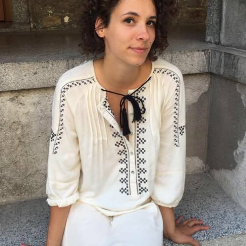For theoretical physics PhD student Ömer Gürdoğan, there’s no question that UK universities offer some of the world’s leading research environments – as well as those all-important funding opportunities.
Originally from Istanbul, Turkey, Ömer completed his BSc in physics at Istanbul Technical University, followed by an MSc program at the University of Crete.
But when it came to choosing a PhD program, he turned his gaze towards the UK – specifically to Queen Mary, University of London (QMUL).
Funding opportunities
QMUL is ranked in the global top 200 in the 2011/12 QS World University Rankings, and Ömer says it is considered among the world’s top universities for research in theoretical physics. “Very importantly,” he adds, “Queen Mary has funding opportunities for non-EU students like myself, without which I couldn't consider any postgraduate studies.”
The university itself has more than lived up to Ömer’s expectations. “I am very happy to be able to conduct research in such a stimulating environment,” he says.
More generally, he talks about the benefits of travelling to a new country for his graduate degree. “Studying abroad is very helpful for exploring the borders of any subject one would like to specialize in. It certainly will give you a more global perspective on your subject – and, on a personal level, it is always interesting to experience new surroundings.”
Having grown up in a large city himself, Ömer hasn’t had much difficulty adapting to life in the UK capital – though he does say it was a challenge to find suitable accommodation.
Now settled in, he’s enjoying visiting the city’s many museums, and in particular finding out about East London’s maritime history. He’s also managed a few trips further afield to explore the “beautiful British countryside”.
Preparing for a research career
Ömer’s current research focuses on scattering amplitudes in gauge theories. He explains, “Gauge theories are types of quantum field theories and the standard model of particle physics is also a gauge theory.
“Scattering amplitudes are generally computed to compare theory predictions with experiments. However, especially the scattering amplitudes in less physical, supersymmetric theories have been found to have exciting mathematical properties and deserve study in their own right.”
Studying this topic in a setting like QMUL, Ömer says, has given him the “ability and self-confidence” that will be essential for a career in research, which is his future ambition.
The university has also provided financial support for him to attend international conferences, which has both broadened his learning experience and allowed him to build contacts with other researchers around the world.
Studying abroad, at a university in the UK or elsewhere, is certainly likely to add value to your graduate degree, whatever professional path you have in mind. As Ömer’s story shows, travelling to a new country can also open up access to graduate funding, and provide opportunities for further travel – the start of a truly international career.


